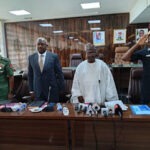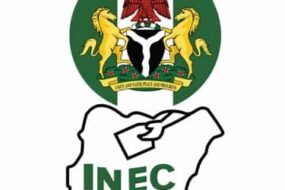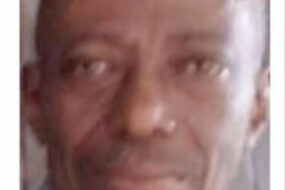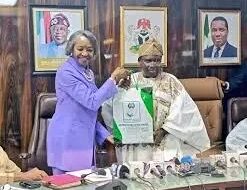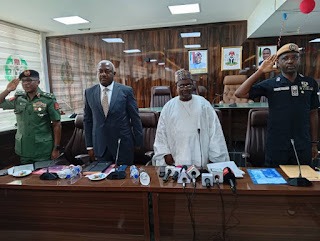
By Balarabe Oshiafi
As Anambra governorship election knocks at the door, Nigeria’s top electoral and security chiefs have declared a full-scale mobilization of forces, logistics, and intelligence to guarantee “the most secure and credible election in the state’s history.”
At a high-powered meeting of the Inter-Agency Consultative Committee on Election Security (ICCES) in Abuja on Tuesday, the Independent National Electoral Commission (INEC), Office of the National Security Adviser (ONSA), and the Nigeria Police Force (NPF) unveiled a multi-layered election security and logistics blueprint combining massive deployments, zero-tolerance directives, and a united front against vote buying and violence.
The new INEC Chairman, Prof. Joash Ojo Amupitan, SAN, making his debut ICCES appearance, announced the deployment of 24,000 ad-hoc and permanent staff across 5,718 polling units, with 200 buses and 83 boats hired to move materials and officials across difficult terrains.
“This marks a new chapter for INEC. We are prepared, determined, and resolute to deliver a free, fair, and credible election that reflects the will of the Nigerian people,” Amupitan declared.
Following a mock accreditation exercise using the Bimodal Voter Accreditation System (BVAS), Amupitan confirmed that technical issues identified have been addressed to ensure seamless electronic transmission of results.
To prevent disenfranchisement, INEC also extended the collection of Permanent Voter Cards (PVCs) across 326 wards until Sunday, November 2, 2025.
“Let it be clear: anyone who attempts to induce voters before or during the Anambra election will face the full weight of the law. We will not allow vote buyers to contaminate the will of the people,” Amupitan warned.
He said INEC had learned from the Ondo 2024 Governorship Election, using it as a coordination model but “with stronger execution and tighter logistics.”
The National Security Adviser (NSA), Mallam Nuhu Ribadu, through his representative Hassan Abdullahi, reaffirmed President Bola Tinubu’s directive on the strategic mobilization of security forces to guarantee peaceful polls.
“Our mission is clear to ensure that elections are held in an atmosphere of peace and safety,” Abdullahi said. “Any disruptive elements or desperate politicians who attempt to undermine this process will be decisively dealt with.”
Ribadu disclosed that the federal government had activated enhanced surveillance, expanded intelligence gathering, and targeted pre-emptive operations to neutralize potential threats before election day.
He also confirmed that ONSA is engaging political party leaders and local stakeholders to enforce non-violence pacts and civic responsibility.
“Political parties must lead by example encouraging their members and supporters to uphold peace, respect the law, and honour the integrity of our electoral system,” he stated.
Ribadu reiterated that all security operations would be under a unified command, led by the Nigeria Police Force, working in close synergy with the military, DSS, NSCDC, and other federal agencies.
“Security agencies stand prepared and resolute. Together, we will secure the process and protect the will of the people,” he assured.
Taking the operational lead, the Inspector General of Police (IGP), Kayode Egbetokun, announced the deployment of 45,000 police personnel to Anambra, in what officials described as a “no-nonsense security lockdown.”
“The Nigerian Police Force will provide airtight protection across every polling unit, entry, and exit point in the state,” Egbetokun said.
He stressed that only federal security agencies represented in ICCES would participate in the election, warning that vigilante groups and state-backed security outfits are barred from any role in the process.
“Only officers from federal agencies represented here will have any operational role. Vigilante groups and state security bodies will have no place in this election,” he declared.


